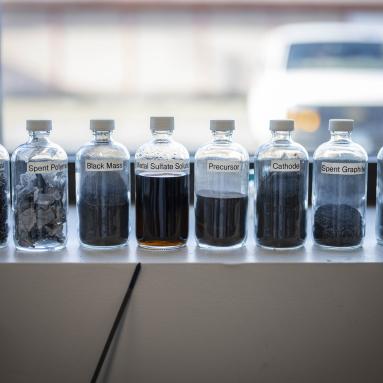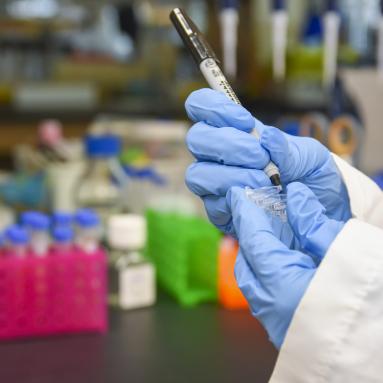Areas of Research

Interdisciplinary. Translational. Powerful.
At WPI, researchers are innovators and educators who are working on solutions to the world’s great problems.
Purpose-driven research at WPI focuses on three key areas that highlight the technical and societal intersections of these global challenges:
- Smart technologies changing the way we live and work
- Materials and manufacturing processes designed for a more sustainable world
- Life sciences and biotechnology
Research at WPI
Off-Road Autonomous Vehicles
Professor Vladimir Vantsevich and Professor of Practice Lee Moradi are taking autonomous vehicle technology off road to develop rugged systems capable of rolling across farms, construction sites, disaster zones, military theaters, and even other planets.
Nurses and Robots
Amid a national shortage of nursing professionals, Assistant Professor Jane Li is leading development of a user-friendly robot that could help nurses care for patients in health care facilities in the US and other countries.
Mysteries of Cell Division
How does one cell divide into two? Associate Professor Amity Manning is uncovering that process in her lab, making discoveries with implications for diseases such as cancer. Every discovery helps improve lives.
Better Medicine
Professor Suzanne Scarlata examines the cellular mechanisms that determine how and why individuals respond differently to a drug, addressing a critical problem in health care. The implications of her research have many applications.
Concrete Solutions
Concrete is everywhere, and its production and deterioration contribute to global carbon dioxide production and waste. Associate Professor Nima Rahbar is working on solutions to make concrete more durable and sustainable.


